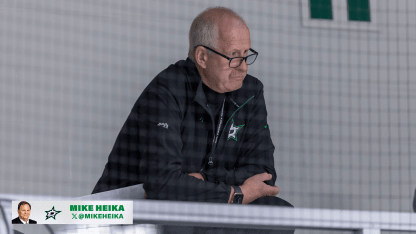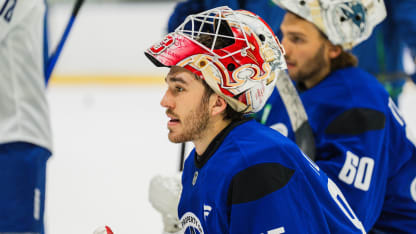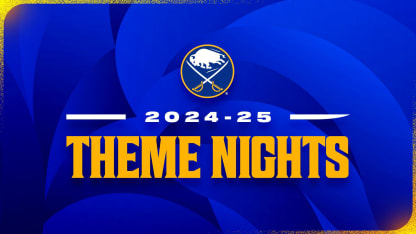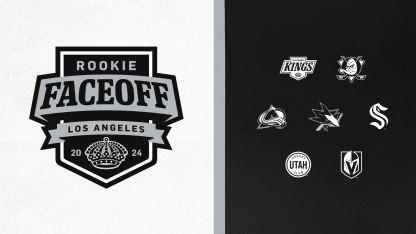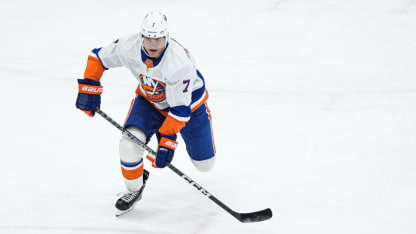Creating a Culture: How the Canucks’ Coaching Staff Utilizes Their Diverse Backgrounds to Find Success as a Team
Creating a Culture: How the Canucks’ Coaching Staff Utilizes Their Diverse Backgrounds to Find Success as a Team
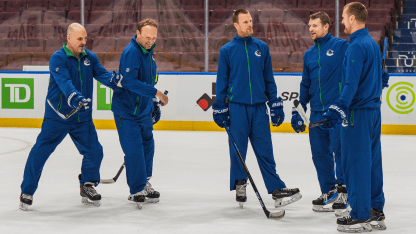
When we approached Rick Tocchet with the idea of writing about the international flair of his coaching staff, he greeted us with his typical big smile. He had a good chuckle and loved the idea of writing about his staff, which he cited as the United Nations crew.
Tocchet and Adam Foote are both from Canada, Marko Torenius from Finland, Yogi Švejkovský from Czechia, Daniel and Henrik Sedin from Sweden, and Sergei Gonchar from Russia.
Each of these coaches has come through divergent upbringings in the hockey world to get to where they are, and they use their knowledge to come together to focus on getting the most out of their players.
“Having the diversity that we have, it’s a really good thing, because what happens when you grow up in Sweden or North America might be a little bit different than Russia or Finland. Every country plays with a unique style, and we have people who have been through that,” said assistant coach Yogi Švejkovský.
“Everyone is wired in diverse ways,” he continued. “For example, the Swedes would hold on to the puck a lot more. With the Czechs, you have to be pretty intense. So, your intensity has to be higher, because there is more confrontation, and there are a lot more puck battles here in North America because of the smaller sheet. That makes North American players, looking on a bigger scale, probably more aggressive from the get-go.”
Gonchar and Foote were both long-time defencemen in the NHL and the two have quite distinct styles of play but synchronize well as a coaching team. Gonchar’s game was heavily defined by growing up watching the ‘Russian Five’ and he is always looking to see how the defence can join the attack to create a cohesive five-man attack.
Committed to the process.
Day 3 of Training Camp complete.Blue vs. White game tomorrow ⚪️#Canucks | @lululemon pic.twitter.com/T80GTd3ZpX
— Vancouver Canucks (@Canucks) September 22, 2024
As for Foote, he played a much more defensive-minded role in his time, giving credit to the way he was raised playing junior hockey in the OHL. Foote has seen the evolution of coaching through the years and the whole staff continues to find ways to connect with today’s NHL players so that they can build them up to be the best players possible.
“You just try to teach them in a way where they can feel more comfortable and open up to you,” said Foote. “I think that’s what the guys on our staff are great at. There are times when a player needs to be lifted a bit and there are times when they need to be pushed. We are here to teach them, and you don’t want to lose a player’s confidence when you’re giving information. I think that’s what Rick likes about this staff; we’re all trying to work together to do the best as a group.”
Gonchar agrees with Foote’s ideology about building a strong relationship between the staff and the players and spoke about the process of progress being the most amazing feeling he has experienced in his role as a coach.
“Not only is the team doing it, but it is us on the staff working together, knowing each other better helps us to work together. So, we continue to evolve as a coaching staff because we are enjoying the process. We are trusting each other and the biggest thing for us is that we are having fun,” said Gonchar.
Tocchet knew Gonchar very well and was excited to get the four-time all-star on his staff in the early days of assembling his team. Gonchar knew the system that Tocchet wanted to run and believed he could be an asset to getting the system integrated into the players’ habits.
As for Foote, he was coached by Tocchet during the 2002-03 and 2003-04 seasons. Tocchet wanted to get Foote in the room because of his defensive knowledge and ability to communicate and teach players from the viewpoint of a former player, and two-time cup champion.
Practicing with purpose.
The work continues through day 2️⃣ of Training Camp.#Canucks | @lululemon pic.twitter.com/STSr58DpxD— Vancouver Canucks (@Canucks) September 21, 2024
On top of the staff’s hockey knowledge, Tocchet speaks highly of his group’s ability to create a culture where players feel comfortable, and the head coach sees how the dynamic of his staff establishes a place where the players feel that comfort.
“The personalities of the guys you bring in are incredibly important,” said Tocchet. “Sergei Gonchar; he’s a gentleman, he’s such a nice guy. Adam Foote likes to have fun; he doesn’t mind giving it to coaches or players. And I think that helps just blend everybody. The twins have been great. They’re witty and have integrated so well with our staff. That’s how you create a cohesive staff.”
Though the focus is almost always on hockey for the staff, Tocchet does enjoy learning about his staff’s backgrounds and the way they grew up with the game.
“Our staff is full of great people and we like learning about each other’s culture,” said Tocchet. “We talk to the twins about Sweden or Sergei about Russia, Yogi is a Czech, Marko is a Finn – there are different cultures here, but they also have knowledge of different ways of talking and handling people. That helps me. It’s a collective style and it helps me look at the world differently, especially talking about things other than hockey, because yeah, we do actually talk about things other than hockey.”


